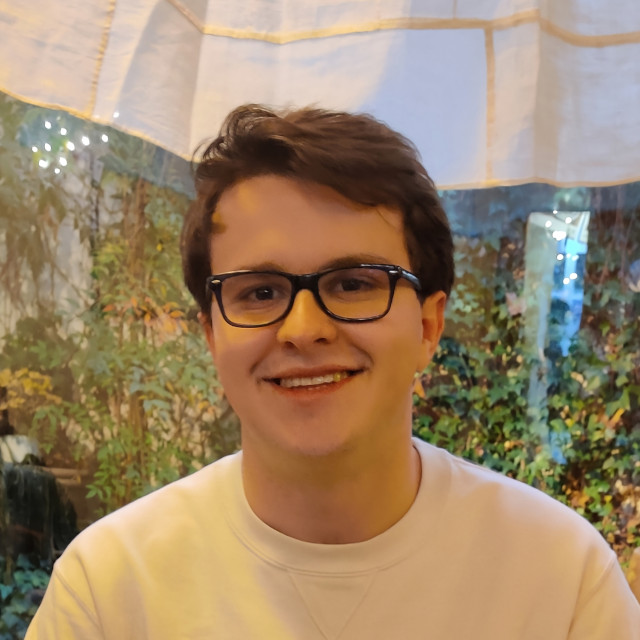 Bernardo Abreu Figueiredo | Karlsruhe University of Applied Sciences (DE)
Bernardo Abreu Figueiredo | Karlsruhe University of Applied Sciences (DE)
My name is Bernardo and I started as a Technical Student in SY-RF-BR in March, working on the code for longitudinal phase space tomography of the beams in the accelerators. The work is particularly about comparing different approaches to optimise the runtime, especially with regard to using GPU's for parallelisation. While being here, I aim to finish my Master's degree in Computer Science at the Karlsruhe University of Applied Sciences.
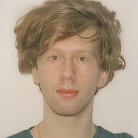 Vlad-Andrei Badoiu | University Politehnica of Bucharest (RO)
Vlad-Andrei Badoiu | University Politehnica of Bucharest (RO)
I am a Ph.D. student at the University Politehnica of Bucharest, under the supervision of Prof. Costin Raiciu. My main research interests include systems, networking, and formal methods. Outside of research, I enjoy biking, playing the guitar, and sometime winning at tennis.
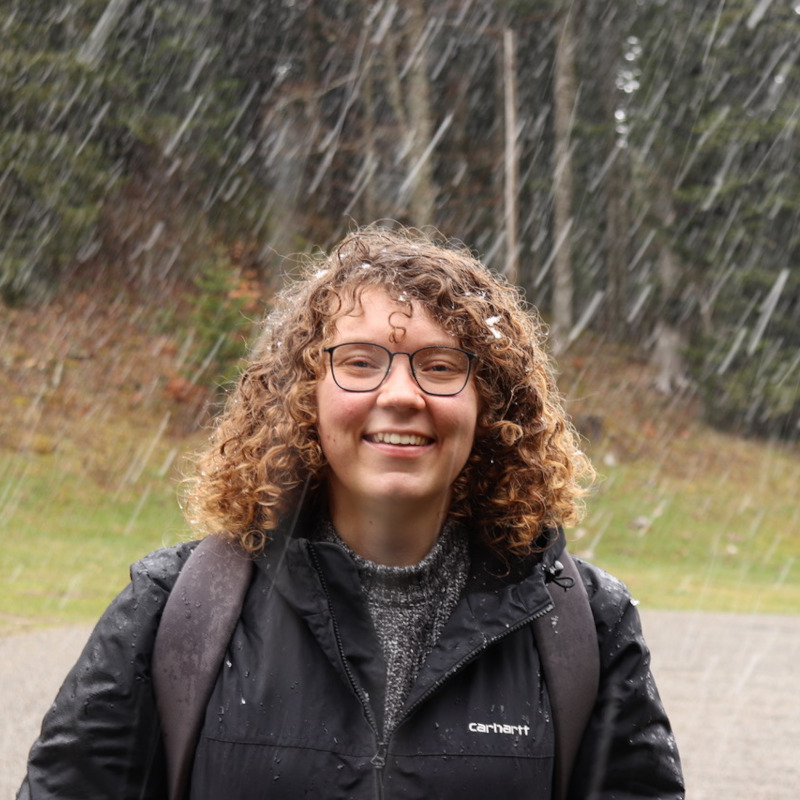 Florine de Geus | CERN
Florine de Geus | CERN
Florine is a doctoral student at CERN in the EP-SFT group and at the University of Twente in the Netherlands. Her work focuses on the design and development of efficient data reduction and deduplication methods for physics data with ROOT’s new I/O subsystem, RNTuple. She graduated with a master’s degree in Software Engineering from the University of Amsterdam and has previous experience at CERN as a technical student, where she worked on the evaluation and further development of support for RNTuple in ATLAS’s experiment software framework, Athena.
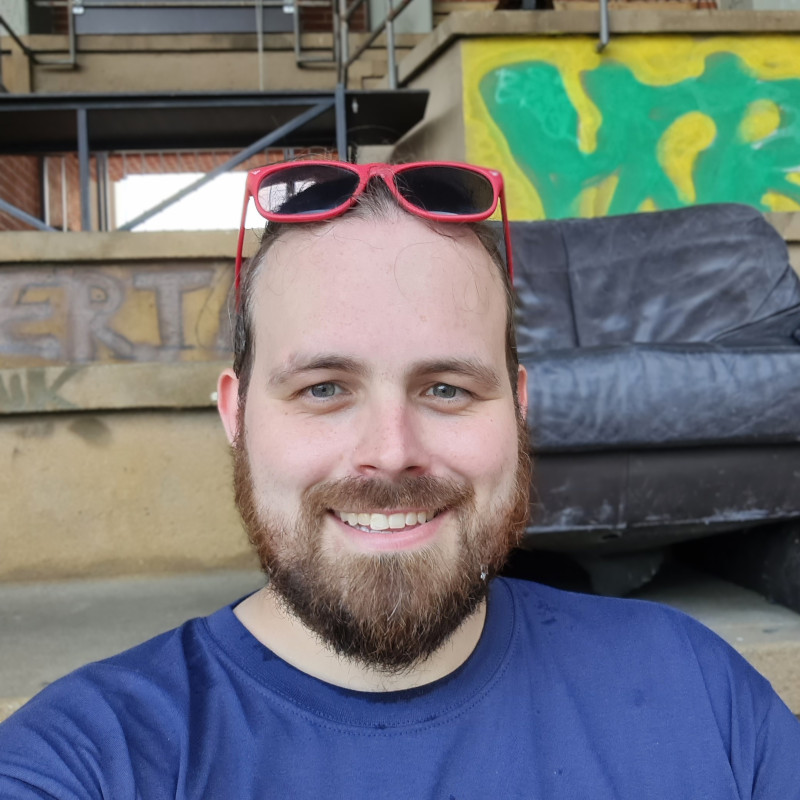 Robin Hofsaess | KIT - Karlsruhe Institute of Technology (DE)
Robin Hofsaess | KIT - Karlsruhe Institute of Technology (DE)
I am a PhD student at KIT, Germany, working in HEP computing R&D at the german T1 center.
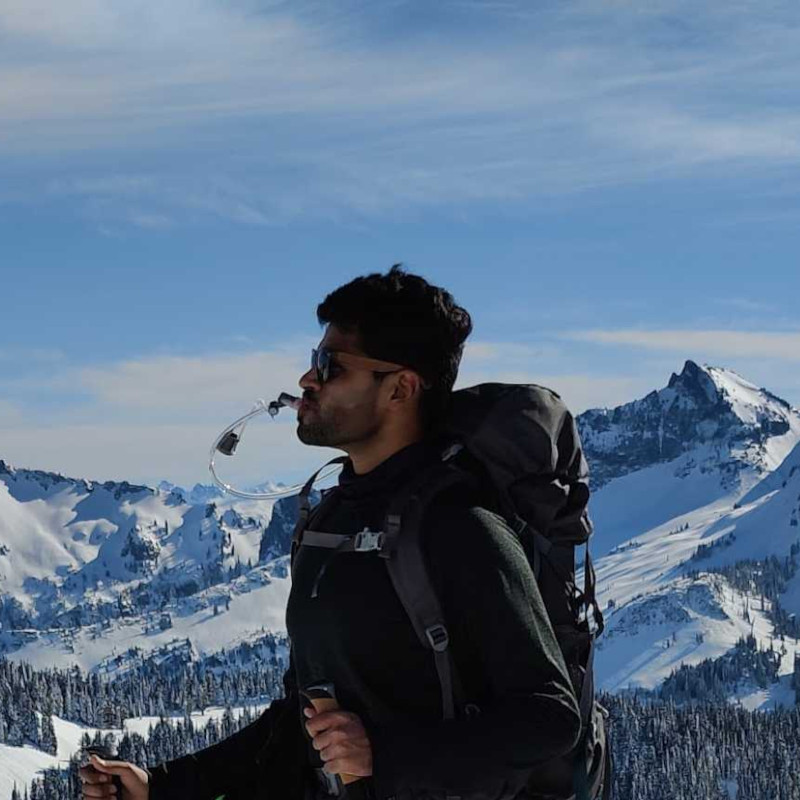 Pratik Jawahar | University of Manchester (UK)
Pratik Jawahar | University of Manchester (UK)
I have a background in computer science and bring prior machine learning experience to my PhD research in Particle Physics for the ATLAS experiment. The end goal of assisting the search for the evidence of dark matter through Anomaly Detection at the trigger level excites me and serves as the primary motivator my PhD. I aim to work in the intersection of Physics and Artificial Intelligence in the future and I thoroughly enjoy the symbiotic development of both fields. I previously worked on Anomaly Detection for new physics searches with the CMS experiment. Work aside, I enjoy rock climbing, hiking, playing tennis and producing music. I've also set myself a goal to obtain a paragliding license by the end of my PhD and have successfully procrastinated these first 6 months :)!
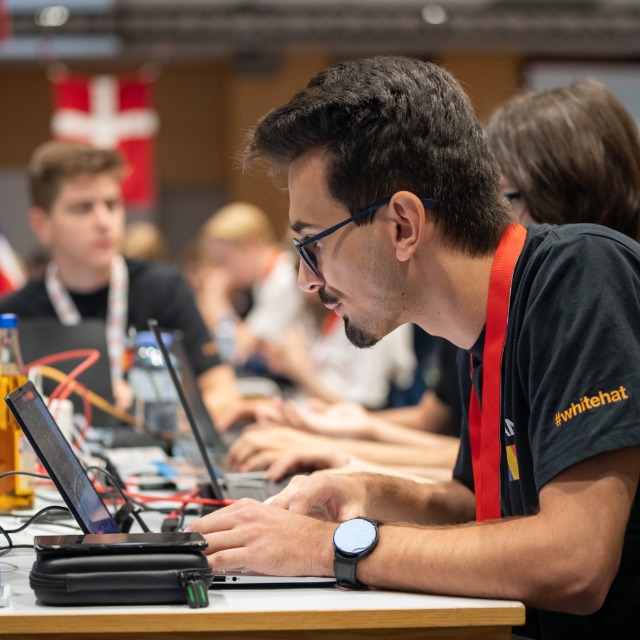 Vlad Nastase | University Politehnica of Bucharest (RO)
Vlad Nastase | University Politehnica of Bucharest (RO)
I am a computer science graduate, passionate about system administration and security. I am currently a teaching assistant at University POLITEHNICA of Bucharest, also working on some research projects. In my free time I tinker with my server and sometimes compete in CTF contests.
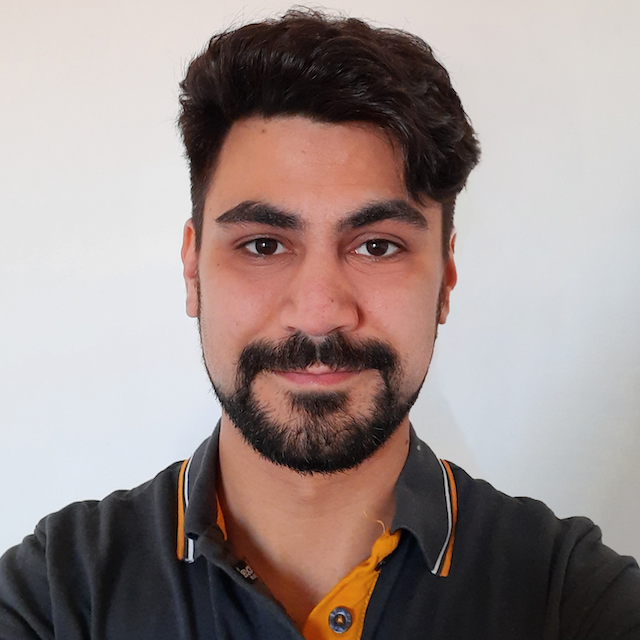 Simone Rossi Tisbeni | Universita e INFN, Bologna (IT)
Simone Rossi Tisbeni | Universita e INFN, Bologna (IT)
I’m a PhD student in Data Science and Computation at the university of Bologna. I'm a member of the CMS collaboration where I have an official responsibility as AlCaDB L3 software coordinator. I graduated in Physics in Bologna, with a Master in applied physics. I tutor for the courses in C++ Programming for Physics, and Applied Machine Learning. In my free time I enjoy playing boardgames and I master a campaign of the Cyberpunk RED rpg.
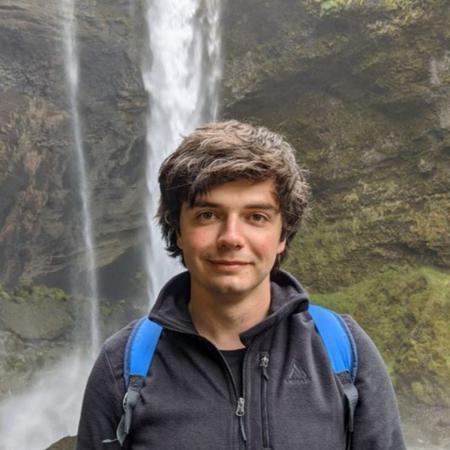 Cristian Schuszter | CERN
Cristian Schuszter | CERN
Hi, I'm somewhere between a Data and Full-stack Software Engineer, with a wide range of tech & job exposure both in academia and industry. For the past 6 years I've been around various teams in CERN, working on Computer Security and SSO topics, then migrating to the Business Computing group in 2021. For the past year I've also been part of the group's solution architects team.I'm working with a team of wonderful people on making the CERN visitor experience as smooth as possible, by developing and maintaining all of our internal and outside-facing platforms for "site management".
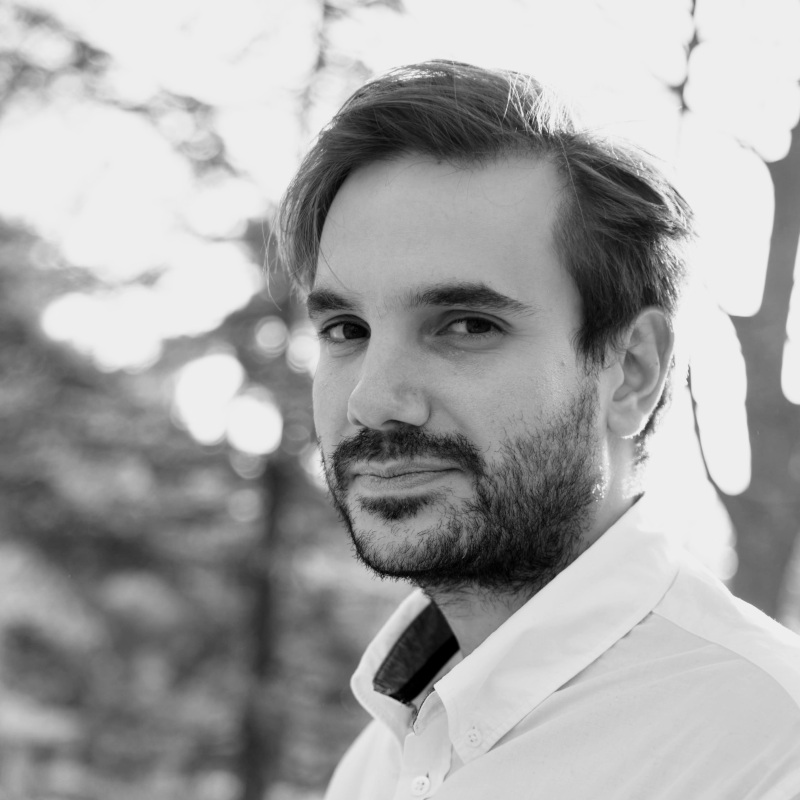 Spyridon Trigazis | CERN
Spyridon Trigazis | CERN
Spyros Trigazis is a computing engineer and a member of the CERN Cloud infrastructure team which provides computing resources to the High Energy Physics community. He has been contributing to open source projects like Fedora, Kubernetes and OpenStack.
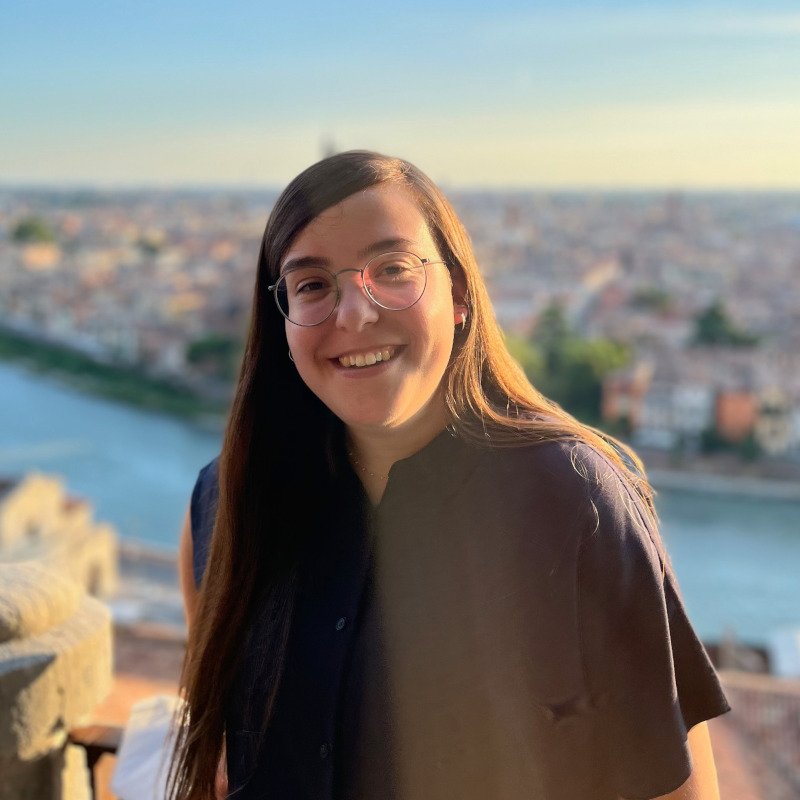 Andrea Valenzuela Ramirez | CERN
Andrea Valenzuela Ramirez | CERN
Andrea Valenzuela is a computing fellow in the Offline & Computing Group of CMS at CERN. Her duties include software development and optimization, continuous integration, and container technologies around the CMS Offline Software. She received a B.S. degree in Engineering Physics from the Universitat Politècnica de Catalunya (UPC), Barcelona, in 2019 and a M.S. degree in Intelligent Interactive Systems from Universitat Pompeu Fabra (UPF), Barcelona, in 2020. She first joined CERN in 2020 as a technical student at the CernVM-FS team.
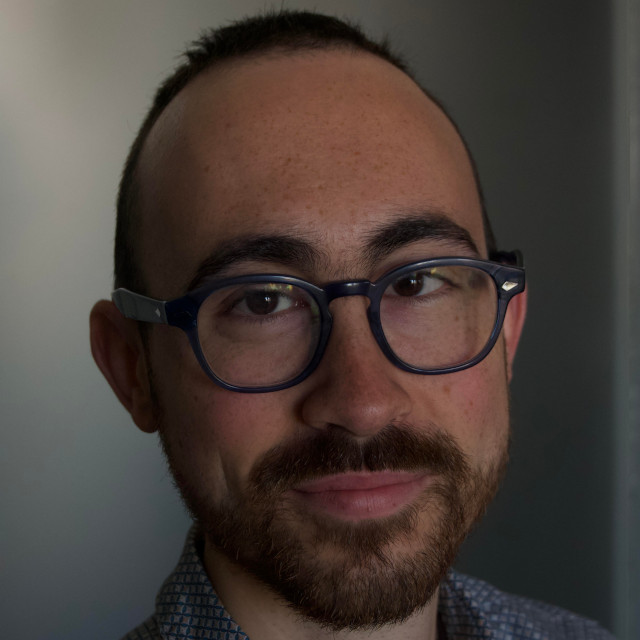 Francesco Vaselli | Scuola Normale Superiore & INFN Pisa (IT)
Francesco Vaselli | Scuola Normale Superiore & INFN Pisa (IT)
I'm Francesco Vaselli, currently a PhD student in Physics at Scuola Normale Superiore and INFN Pisa where I specialize in the simulation of particle physics data. My work primarily focuses on Machine Learning for fast simulation of analysis-ready data at the CMS Experiment. There, I’m one of the core contributors to the FlashSim project, an innovative framework for fast end-to-end simulation through Normalizing Flows. I've always been driven by my curiosity, which makes me deeply interested in new and original ways to tackle challenging problems in scientific computing. In my lecture, I aim to give you an overview of generative machine learning for physics, sharing insights and sparking discussions on the latest advancements in our field. Beyond my professional interests, I would describe myself as a curious and spiritual person. I like running, drawing, hiking, yoga, reading and lifting weights as well as nature and animals (insects too!).
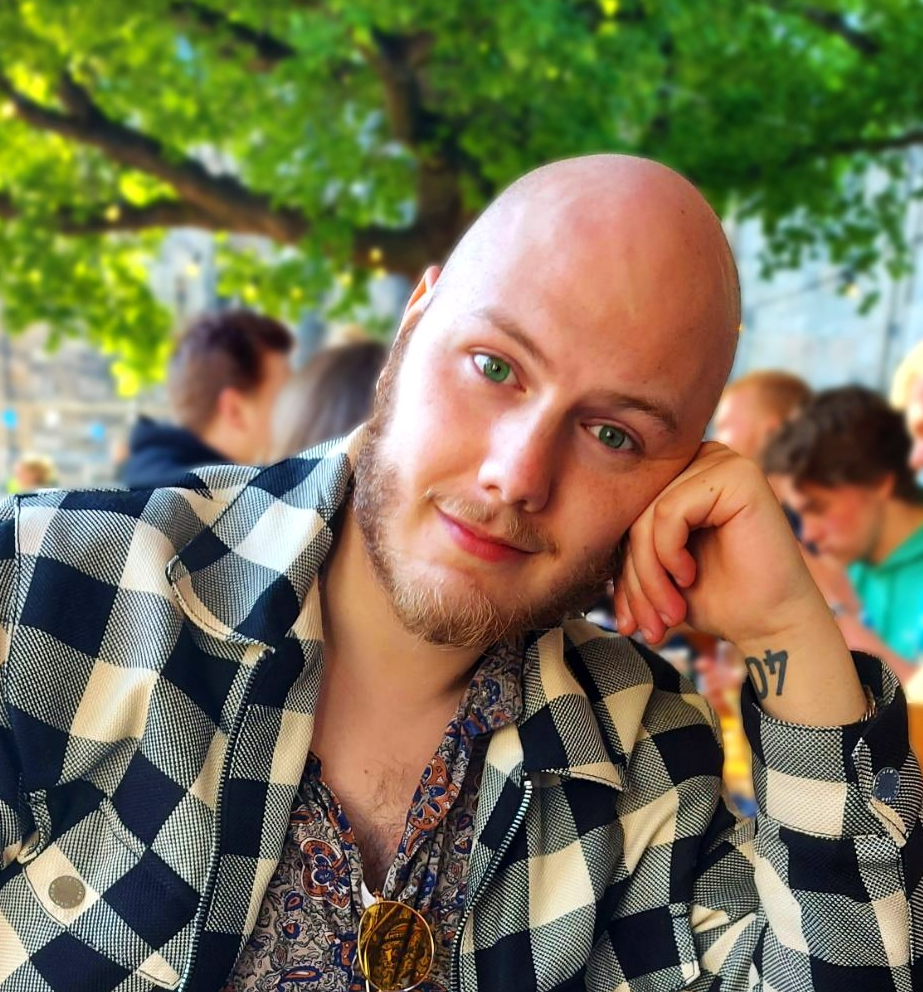 Zenny Jovi Joestar Wettersten | CERN
Zenny Jovi Joestar Wettersten | CERN
At the intersection between theory and experiment lies phenomenology, the science of going from theory to experiment and back again. I am a doctoral student at CERN working on applying hardware acceleration to this task — specifically, I work on speeding up so-called hard event generation with vectorised CPUs and GPUs. As I have an interest in both quantum field theory and high-performance computing, I hope to educate you on how we can make use of the latter in our work on the former.